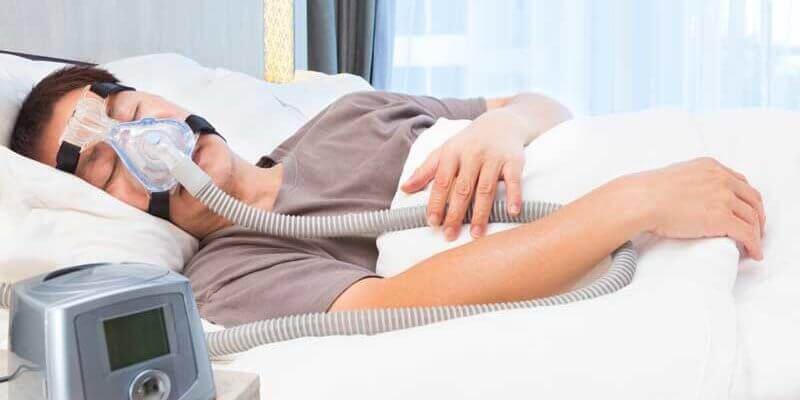Have you heard of sleep apnea surgery and are wondering if it’s the right choice for you? Keep reading and learn more here.
Around
22 million Americans suffer from sleep apnea.
Sleep apnea is a sleeping disorder in which, throughout sleep, a person’s breathing can stop. While this is often a minor condition, it can become serious if left untreated, which is why many people look for a solution.
Of all the things that can be done to help sleep apnea, surgery has proven to be the most effective option. However, people often wonder what they can expect from sleep apnea surgery.
The Process of Maxillomandibular Advancement
Although there are a few different types of surgery available to treat sleep apnea, one of the most common is called maxillomandibular advancement (MMA) and involves repositioning the jaw.
Here’s what to expect from it.
Preparation
Usually, this particular sleep apnea treatment involves quite a bit of preparation.
A sleep study is done to check exactly how your quality of sleep is. After that, you’ll get a physical examination of your head and jaw to look for obstructions, and a camera may be used to check the alignment of everything.
If MMA seems like the best option for you, dental impressions and x-rays are necessary. You may also get a low-grade CT scan to get a full picture of what’s going on.
Make sure to follow all of your doctor or dentist’s instructions on food and drink the day before surgery. You’ll usually have to stop taking blood-thinning medications for about a week before, as these can make the surgery dangerous.
Many painkillers thin the blood, so make sure you know what’s on the list.
Process
Before the surgery, your surgeon should talk you
through the process and make sure you’re comfortable with the anesthesia. You’ll then be put to sleep to ensure you don’t feel anything throughout the whole process, so no need to worry about pain.
First, your surgeon will insert a breathing tube. After that, they’ll place heavy-duty braces on your teeth to keep them in place.
The next step is to move your jaw into place and hold it together with titanium plates and screws to ensure it doesn’t move. They’ll place elastics on the braves and sew up the small incisions on your cheeks that were used to get access to the jaw.
Recovery
You’ll likely need to stay in a ward as an in-patient for two or three nights following surgery. The medical staff must ensure you can urinate, drink liquid on your own, walk short distances, and take pain medication.
You’ll have post-operative appointments to ensure that you’re on the mend, though you may not be able to return to a normal diet for quite a while — often around three months.
What to Expect Afterward
A study found that this surgery reduced the severity of the condition by more than 50% in every single person involved in this investigation.
There can be some side effects from this surgery, however. Bleeding, swelling, and some discomfort are all very common in the days following and many patients lose weight due to the restrictive diet.
Other Types of Surgery
Although MMA is one of the most common types of oral surgery used to treat sleep apnea, it’s far from the only option. There are other solutions too.
Radiofrequency volumetric tissue reduction
If your sleep apnea isn’t too bad and doesn’t require major surgery, this is a minimally invasive procedure to reduce some of the tissue. For some, this is the perfect option to treat their sleep apnea.
Uvulopalatopharyngoplasty
A UPPP involves removing excess tissue in the throat. This makes the airways wider and allows those who suffer from sleep apnea to breathe more easily.
These are both more mild treatments where the preparation and recovery are a lot lighter. While they may not work for some, they’re the perfect solution in some cases and make a world of difference.
Cost
Many people often wonder what the sleep apnea surgery cost is. This is a major factor for many in making a decision about which route to choose.
The cost, however, mostly depends on what type of surgery you get. The cost for MMA surgery, for example, can be anywhere between
$80,000 and $100,000.
Of course, most insurance should cover the costs of necessary surgery, so make sure you just look at what your copay is and what you’ll actually be responsible for at the end of the day.
Choosing the Right Procedure
Ultimately, choosing the right procedure is down to you and the medical professionals advising you. Listen to what they say that you need and go with them.
Oral surgery can seem daunting but, at the end of the day, it’s very worth it to ease the problems of sleep apnea and let you get back to a good, undisturbed night’s rest. Sleep apnea can be dangerous if left to progress, so don’t let it!
Sleep Apnea Surgery Is Varied: Make the Right Choice for You
If you’ve decided that sleep apnea surgery might be for you, it’s time to talk to medical professionals about making the right choice. Have a look at oral surgeons in your area, read the reviews, and talk to one that you think can advise you on what you should do.
Remember, the process can seem long and intimidating, but it’s very worth it in the end as long as you follow the instructions the surgeon gives you for recovery.
If you’re looking for a trusted oral surgeon who can treat sleep apnea,
contact us today. We’re located in Billings, MT, and are ready to help you out.
